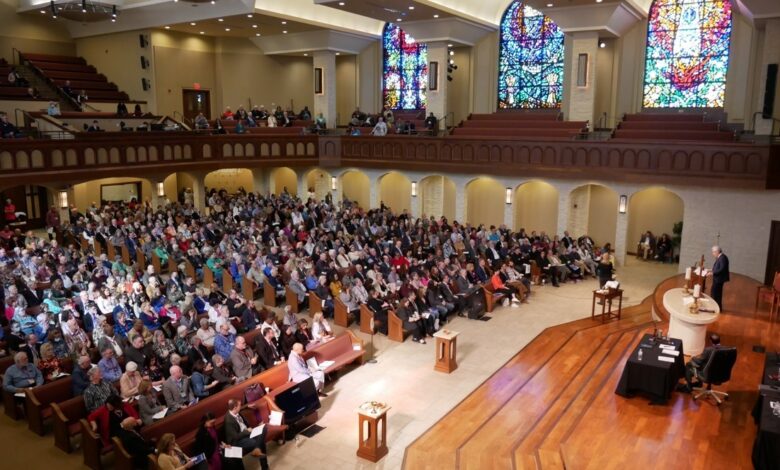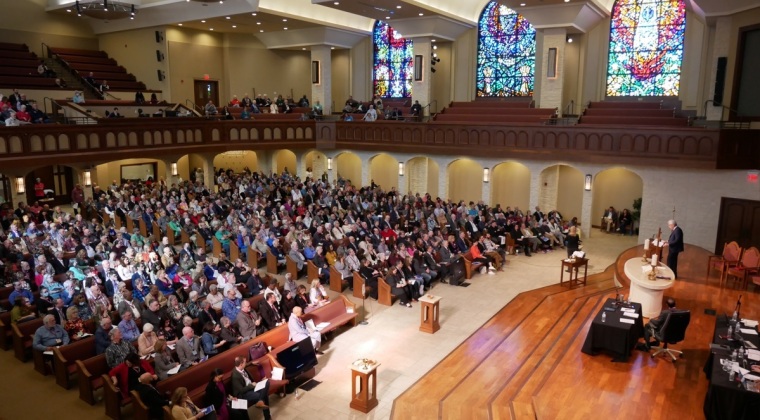Over 5,000 UMC churches granted disaffiliation since 2022


After an active week of United Methodist Church regional conferences, the number of congregations approved to disaffiliate from the United Methodist Church in the last two years has surpassed the 5,000 mark.
This week, according to numbers compiled by UM News, the number of churches that have had their disaffiliation votes approved by their annual conferences under Paragraph 2553 of the UMC Book of Discipline went from around 4,600 on Tuesday to 5,321 as of Friday morning.
Although UM News’ numbers include all churches that have been granted the right to disaffiliate since 2019, there was a substantial uptick in departures beginning last year, with around 2,000 congregations having their disaffiliation votes approved in 2022 and over 3,000 so far in 2023.
From 2019 to 2021, by contrast, fewer than 200 had disaffiliated from the second-largest Protestant denomination in the United States.
UM News’ data is based on a “review of U.S. annual conference reports, publicly available journals, and reports of special annual conference sessions held in 2022 and this year.”
“The General Council on Finance and Administration, the denomination’s finance agency, is collecting the official data on disaffiliations and church closures,” the outlet notes. “But the finance agency’s count of disaffiliations lags behind UM News’ data because it must wait for annual conferences to submit official reports.”
In 2019, at a special session of the UMC General Conference, delegates voted to add Paragraph 2553 to the Book of Discipline, which created a process for allowing churches to leave the denomination amid a longstanding debate over the denomination’s official stance on homosexuality.
This growth contributed to the recent votes from multiple regional conferences held this week that approved the disaffiliation of hundreds of congregations seeking dismissal.
These included the 286 churches in the Kentucky Annual Conference on Sunday, 113 churches in the South Carolina Conference on Tuesday, and 237 churches in the East Ohio Conference on Thursday.
For the East Ohio Conference, the departing churches represented around a third (36%) of the member congregations for the regional body, with 414 churches remaining with the conference.
“We can no longer focus our attention and give energy to those who have chosen to withdraw or disaffiliate from The United Methodist Church. We grieve the loss,” said East Ohio Bishop Tracy S. Malone in her Episcopal Address on day one of the annual conference.
“We pray for them, and we bless them on their journey. We must focus on who is staying in The United Methodist Church and keep our eye ever vigilant on our mission and vision.”
Over the past few decades, theological liberals have pushed to change the Book of Discipline’s stance prohibiting the blessing of same-sex unions and the ordination of noncelibate homosexuals.
Efforts to remove the Book of Discipline language have been a focal point at UMC General Conference, a churchwide legislative gathering generally occurring every four years.
Although these efforts have failed, many theological progressives in the UMC have refused to follow or enforce the rules, much to the frustration of theological conservatives.
In early 2020, UMC leaders from theologically diverse backgrounds announced their intention to pass a measure at General Conference that would allocate $25 million for theologically conservative Methodists to leave the UMC and create their denomination.
However, the COVID-19 pandemic and subsequent lockdowns prompted the UMC to postpone General Conference on multiple occasions, ultimately deciding to hold the gathering in 2024.
In response to the continual delays, conservatives launched the Global Methodist Church last year, with many departing congregations opting to affiliate with it.
“It is anticipated that some theologically conservative local churches will find annual conferences willing to negotiate fair and just exit provisions, while others will, unfortunately, face obstacles in their paths,” announced the GMC in March 2022.
“The Transitional Leadership Council decided it was time to launch the Global Methodist Church, so those who can leave early will have a place to land, to begin building and growing and making room for others to join later.”
While many disaffiliating churches have joined the GMC, others seek to become nondenominational churches or create other denominational start-ups.
Many churches face financial obstacles to their quests to disaffiliate as some conferences require churches to pay hefty sums to keep control of their property. This, and other barriers, have led hundreds of churches to seek legal action in states like Florida, Georgia, and Maryland.




